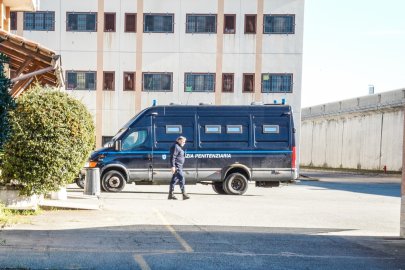Introduction
In recent weeks, the treatment of migrants in Italy has come under intense scrutiny following a tragic incident involving a suicide in a prison. NGOs and human rights organizations are raising concerns about the conditions faced by migrants, particularly in detention centers. This article delves into the implications of this incident, the current state of immigration reform, and how it reflects broader issues surrounding humanitarian parole and migrant rights.
The Incident and Its Aftermath
The suicide of a migrant in an Italian prison has sparked protests and calls for action from various NGOs. These organizations argue that the treatment of migrants in Italy is inhumane and often neglects their basic rights. The incident has highlighted several key issues:
- Inhumane Living Conditions: Reports indicate that many migrants are held in overcrowded facilities with inadequate access to healthcare and psychological support.
- Lack of Support Services: NGOs have pointed out that migrants often lack access to legal assistance and information about their rights, making it difficult for them to navigate the immigration system.
- Increased Stigma: The portrayal of migrants in the media often contributes to societal stigma, making it harder for them to integrate and access necessary services.
These issues have prompted calls for comprehensive immigration reform and better oversight of detention facilities.
Current Immigration Landscape in Italy
Italy’s immigration policies have come under fire, especially in light of recent events. The government’s approach to handling migration affects not only those seeking asylum but also the broader public perception of immigration. The following points summarize the current situation:
Policy Challenges
- Stricter Immigration Laws: Recent policies have aimed at curtailing immigration, complicating the paths for migrants seeking asylum.
- Humanitarian Parole Programs: While some initiatives exist, many argue that they are insufficient to meet the needs of the migrant population.
- Increased Detention Rates: The surge in the number of migrants detained has raised concerns about overcrowding and the adequacy of facilities.
Impact on Migrants
The impact of these policies is significant. The combination of stricter laws and inadequate support services has resulted in a challenging environment for migrants. Many are left vulnerable to exploitation and abuse, as they struggle to navigate an increasingly complex immigration system.
NGOs and Their Role
NGOs play a crucial role in advocating for the rights of migrants in Italy. They provide essential services, including:
- Legal Assistance: Helping migrants understand their rights and navigate the legal system.
- Psychological Support: Offering mental health services to those affected by trauma.
- Public Awareness Campaigns: Educating the public about the realities faced by migrants and advocating for policy changes.
Despite their efforts, NGOs face challenges such as limited funding and increasing hostility from some government entities.
The Need for Reform
The incident in Italy serves as a stark reminder of the urgent need for immigration reform. Key areas for improvement include:
Improving Living Conditions
Migrants in detention should have access to humane living conditions, including:
- Adequate Healthcare: Ensuring that all detainees receive proper medical attention.
- Psychological Support: Providing mental health services to address trauma and stress.
- Legal Support: Offering comprehensive legal assistance to help migrants understand their rights.
Expanding Humanitarian Parole Programs
Humanitarian parole programs must be expanded to ensure that migrants can obtain the necessary support without facing excessive barriers. This includes:
- Streamlined Processes: Simplifying application processes for humanitarian parole.
- Increased Resources: Allocating more resources to support migrant integration and legal assistance.
Conclusion
The tragic suicide of a migrant in an Italian prison has brought to light the urgent need for reform in the country’s immigration policies. NGOs are calling for action to improve the treatment of migrants and ensure their rights are protected. As the situation evolves, it is essential to prioritize humane treatment and support services for all migrants, ensuring they are treated with dignity and respect. The commitment to making Italy a safer place for everyone must be a shared responsibility among government entities, NGOs, and the public.










